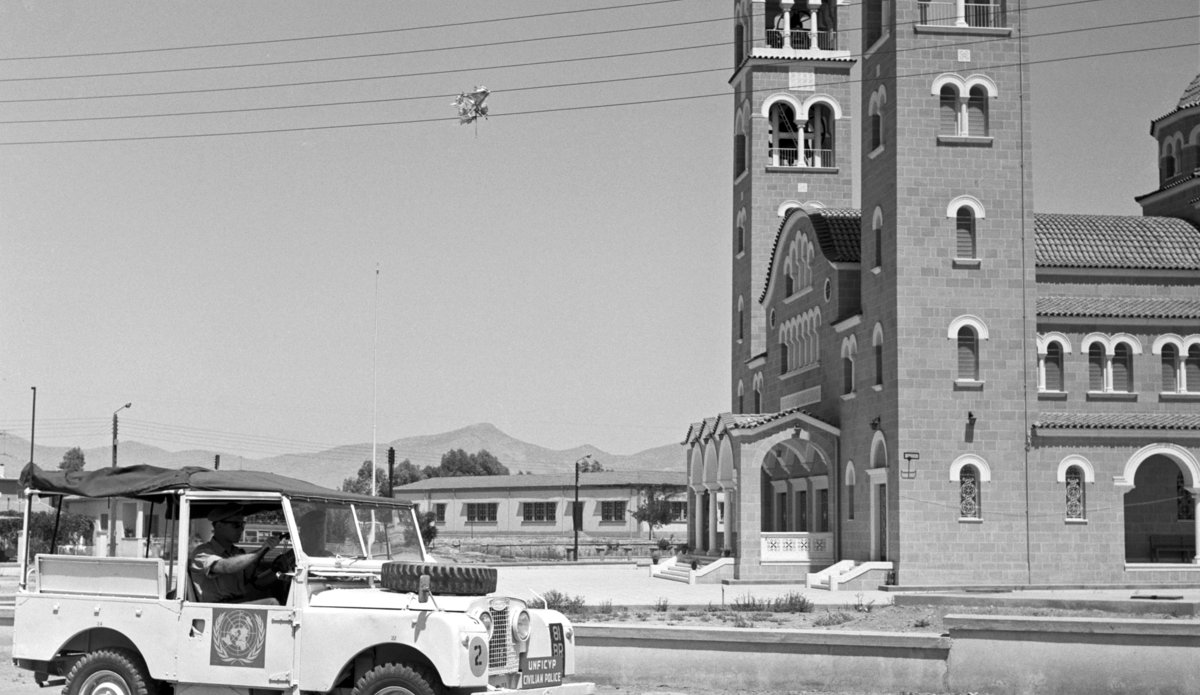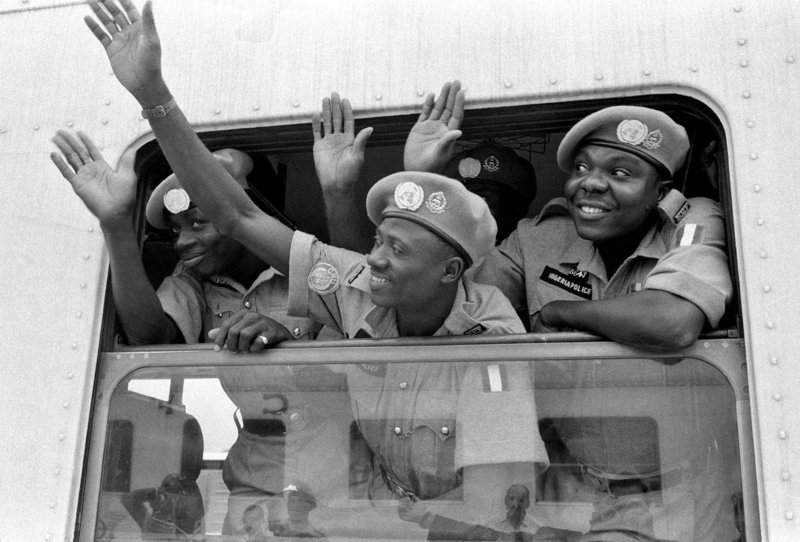2018 Report of the Secretary-General on United Nations policing (S/2018/1183)
This reports addresses: (a) the implications for the delivery of policing mandates stemming from the restructuring of the Secretariat’s peace and security architecture; (b) the strengthening of the operational and policy coherence of United Nations policing within the United Nations system; (c) the augmenting of the Organization’s capability, accountability and transparency; (d) planning for strategic police generation gaps and key skill sets; (e) initiatives to improve mission transitions and timely exits; and (f) the strengthening of partnerships between the United Nations and international, regional and subregional organizations.
2017 - Security Council resolution S/RES/2382 (2017) on UN policing adopted
The Security Council on Monday adopted resolution S/RES/2382 (2017), stressing the important contribution that United Nations policing can provide in peacekeeping and special political missions throughout the conflict cycle.
2016 – Secretary-General Report on United Nations Police
The report of the Secretary-General on United Nations Police, requested in Security Council resolution 2185 (2014)will be published in late 2016. The third phase of the Strategic Guidance Framework was launched, including the development of manuals on how to conduct UN policing.
2015 – High-level Independent Panel on Peace Operations and SG implementation report
Upon request of the United Nations Secretary-General the High-Level Independent Panel on Peace Operations (HIPPO) presented its report on how United Nations peace operations can be made more effective, efficient and responsive in June 2015 (A/70/95). In his implementation report, the Secretary-General welcomed the progress on the Strategic Guidance Framework, took note of the work on new modalities for planning and recruitment and tasked the Police Division to initiate an external review of its future function, structure and capacity (A/70/357). An independent review team began work in early 2016. Its report will feed into the Secretary-Generals report on United Nations Police, due by December 2016.
2014 – Adoption of Security Council Resolution 2185
In November, the Security Council adopted the first thematic resolution 2185 (2014) on international police peacekeeping, complementing guidance and strategic direction United Nations Police receives from the General Assembly Special Committee on United Nations Peacekeeping (C-34), the United Nations forum mandated to review comprehensively the whole question of peacekeeping operations in all their aspects.
2013 – Policy and Strategic Planning Advances
In December, the first phase of the Strategic Guidance Framework for International Police Peacekeeping and the United Nations Police Multi-Year Vision and Strategy 2020 are finalised.
2012 – Civilian Police Experts
The completion of the mandate of the United Nations Integrated Mission in Timor-Leste in December revealed a number of best practices, including the usage of civilian police experts as a complement to the existing deployment modalities of individual police experts and formed police units.
2011 – Secretary-General Report
In November, the Secretary-General issued the first report dedicated to United Nations Police (A/66/615). The report illustrates the growing importance of the United Nations Police as a central element in the achievement of sustainable peace and security, challenges faced and to better respond to those challenges, using scarce global resources in the most efficient manner.
2010 – Peak of authorised United Nations Police Deployments
14,669 United Nations Police of 17,616 authorized deployed.
2009 - Increasing the participation of female police officers
In August 2009, the United Nations launched a Global Effort to increase the participation of female police officers in national police services and, subsequently, in United Nations peace operations around the world. The goal of the United Nations is to have 20 percent of its police female. The first all-female formed police unit was deployed from India to the United Nations Mission in Liberia (UNMIL) in January 2007.
2005 - Standing Police Capacity
Following the Brahimi Report, the General Assembly created the United Nations Standing Police Capacity to start up police components in new missions and assist police components in existing missions, which became operational in October 2007. Police officers and staff were immediately deployed to help set up the United Nations Police component in the United Nations Mission in Chad (MINURCAT).
The United Nations Integrated Mission in Timor-Leste (UNMIT) was established with an executive mandate for United Nations Police.
2000 – Brahimi Report Recommendations
The United Nations Panel on Peace Operations called for, among other things, a “doctrinal shift” in the use of police and other rule of law elements. The Civilian Police Unit, created in 1993 inside of the Department of Peacekeeping Operations (DPKO), becomes the DPKO Police Division. Since 2007, the Division forms part of the DPO Office of Rule of Law and Security Institutions.
1999 - First Formed Police Unit
The first formed police unit was deployed by the United Nations to the United Nations Mission in Kosovo (UNMIK). In December 1999, 4,613 United Nations Police were deployed in 11 United Nations peacekeeping operations.
1994 - Numbers Increase
By 1994, 1,677 United Nations Police were deployed in peacekeeping operations. In 2005, the name was changed from Civilian Police or CIVPOL to United Nations Police.
United Nations police played an important role in the United Nations operations in the former Yugoslavia, namely: United Nations Protection Force (UNPROFOR), United Nations Transitional Administration for Eastern Slavonia, Baranja and Western Sirmium (UNTAES), United Nations Mission in Bosnia and Herzegovina (UNMIBH), United Nations Preventive Deployment Force (UNPREDEP), United Nations Civilian Police Support Group (UNPSG), as well as United Nations Confidence Restoration Operation in Croatia (UNCRO). United Nations Police were given an executive mandate in the United Nations Mission in Kosovo (UNMIK).
1989 –Growing Demand for United Nations Peace Operations
In the 1990s, the number of United Nations peacekeeping operations increased and United Nations Police components were deployed in United Nations Transition Assistance Group (UNTAG), United Nations Observer Mission in El Salvador (ONUSAL), United Nations Operation in Mozambique (ONUMOZ) and United Nations Transitional Authority in Cambodia (UNTAC).
1964 - First Police Component
In 1964, the first “component” of police was deployed to the United Nations Peacekeeping Force in Cyprus (UNFICYP), a peacekeeping operation where United Nations Police still serve today.
1960 – First United Nations Police Deployment
United Nations Police deployed for the first time to the United Nations Operation in the Congo (ONUC).
1948 – First Reference to a United Nations Police Service
Secretary-General Trygve Lie suggests establishment of the United Nations Police Service.


